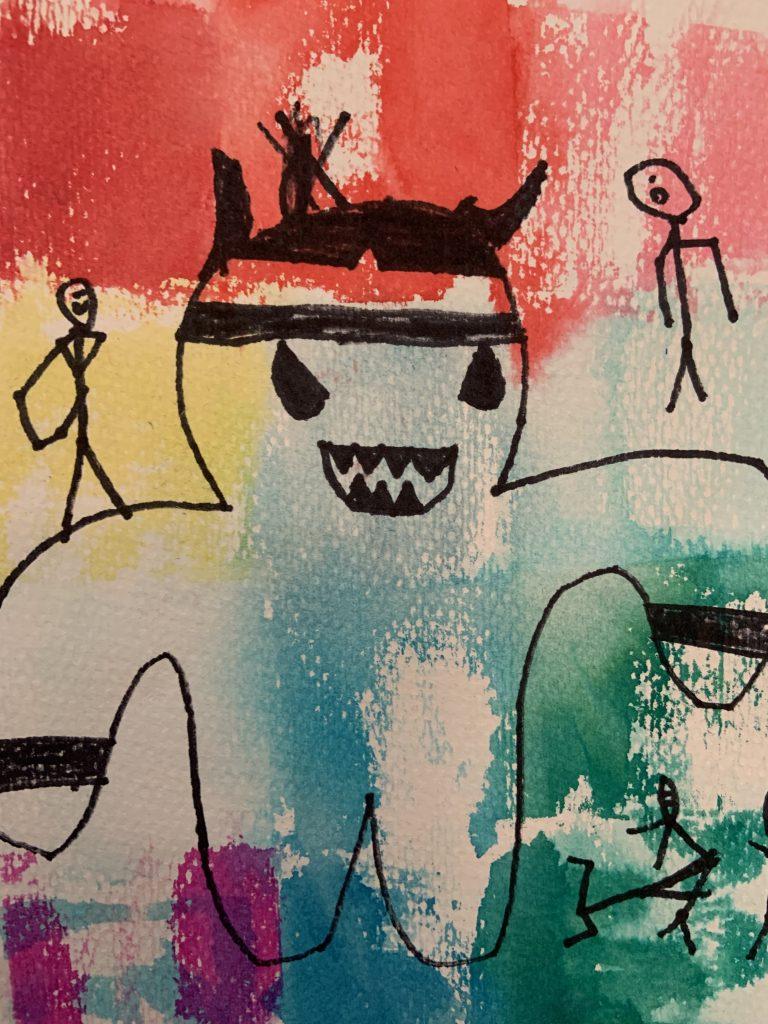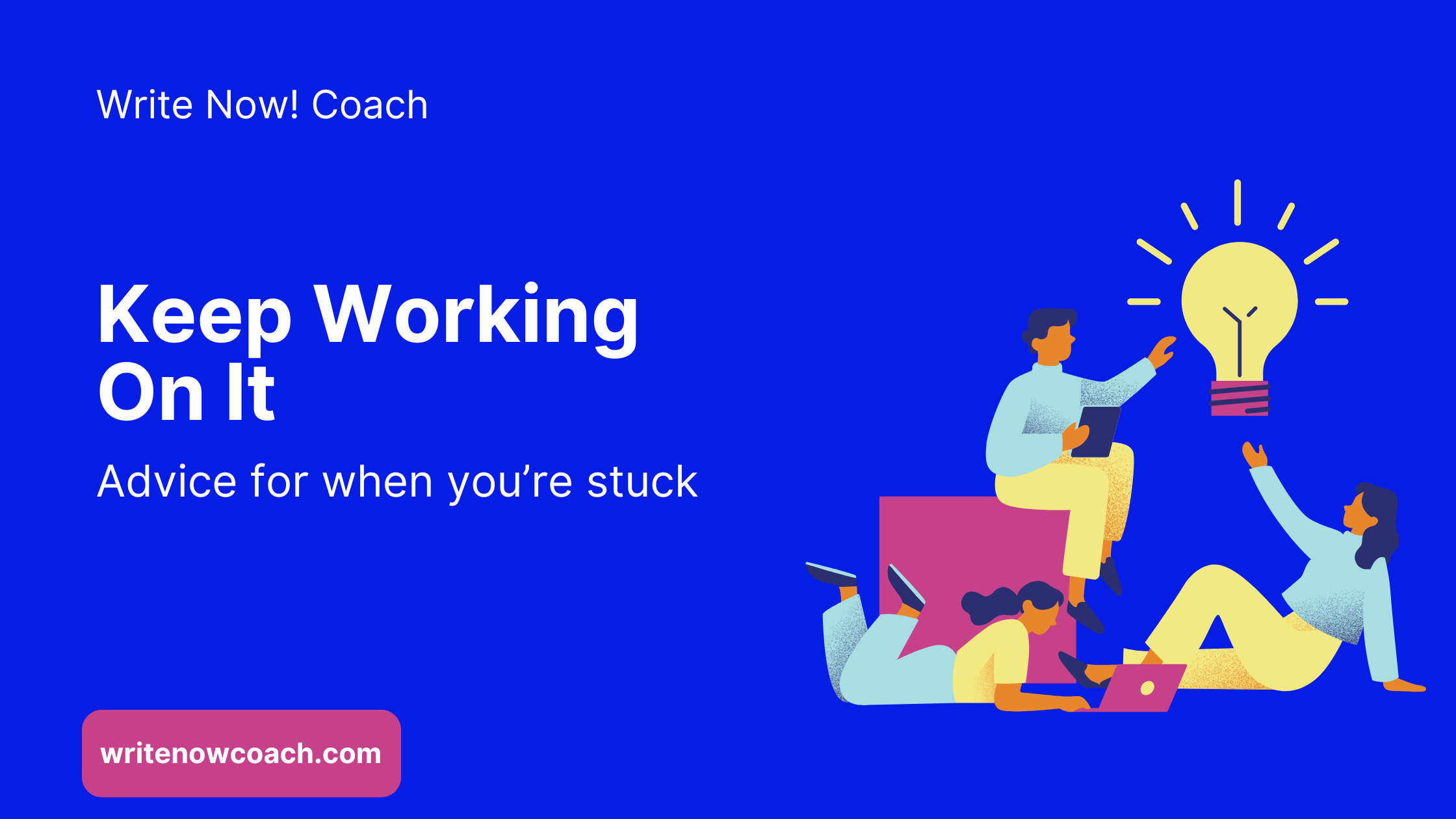Keep Working On It
by Rochelle Melander
We studied Paul Klee’s painting Senecio. The children drew a picture of themselves with a Sharpie. Then they layered the drawing with tissue paper, dabbing water on it to make it bleed. Some children discovered that if they dipped their paper in water, they could direct the colors to fill in specific parts of their paintings. The results, as you can see from the photos, were amazing.
One of my first grader students struggled with the assignment. Although the prompt was to draw a self-portrait, he drew a monster. (Of course he did!) His first one was nearly perfect—but he gave it to me, grabbed a second sheet of paper, and tried again. Not satisfied, he started over again. By the time I saw what was happening, he was staring at his paper with tears streaming down his face. We talked a bit about what was going on. Or, rather, I talked, and he cried. I rescued his first drawing and invited him to try the second step. Even if he didn’t love the drawing, he’d get to play with the paper and water.
At that moment, another student said, “Yeah, you might not like it now. But keep working on it. When you look at it later, it might be better than you thought.”
Good advice.
The student’s work turned out great. And all because of this encouragement to just try and see what you think later on.

I’ve been there—but with my writing. I look at my work and think, “It’s garbage. It won’t sell. Why bother?” One client reported feeling so discouraged with their work that they put it away for months.
How do you deal with a piece that isn’t going well? Do you start over, stop working, or abandon it altogether? What if you took my young friend’s advice and just kept writing forward? When you look at it later, it might be better than you think.
But how?
Sure, you can just finish what you started. But what if writing forward seems pointless.
Corral your ideas.
Creating a mind map can help you gather your ideas before you write them up. When you get stuck, it can help you figure out how to move forward. If a mind map does not work for you, just make a list. See my quick mind map video here.
Try a different approach.
Make a list. Write a poem. Describe one small event or place.
Switch mediums.
If you’re working on computer, use paper. If you’re using paper, try the computer. Or ditch it all and dictate your piece.
Write something new.
Set aside the project for a bit and work on something else. When you get back to it, you might have fresh eyes.
Brainstorm with a friend or coach.
Sometimes you need to talk through possibilities with someone else. Get tea with a writing friend and ask for their input. Or message me for a session. I love brainstorming!
The point? As my student said, “Keep working on it.” Even if you dislike what you’re doing now, later on you might discover a gem in the mess.
Write Now! Coach Rochelle Melander is an ADHD-trained professional certified coach who has helped hundreds of people write and publish books. She’s available to help you create a plan for your writing project, overcome distraction and procrastination to start and finish your writing, and navigate publishing and marketing your book. Book a private consultation: https://writenowcoach.com/consultation/









